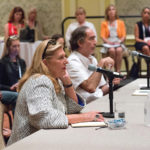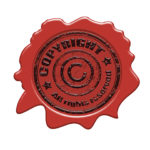
If the definition of an expert is someone who has made all the mistakes possible in a given situation, then Jack Molisani — thanks to some teachable moments planning his first conference outside of the United States — says he now qualifies as an expert global planner.
The owner of a staffing company for content professionals, Molisani has produced the LavaCon Conference on Content Strategy and Technical Communication Management in U.S. cities for 14 years. He said he “fell into” creating and producing the annual event after attending a regional Society of Technical Communication conference in Hawaii in 2000, where he saw a programming gap: It was geared to content strategists rather than those at a higher managerial level. He decided to create his own commercial conference for senior content managers, and launched LavaCon (named for its Hawaiian roots) in 2002.
Since then, the annual niche conference has developed a following, attracting 350 in-person and 119 virtual participants in New Orleans in 2015, compared to 250 face-to-face and 19 online attendees in Portland, Oregon, the previous year. LavaCon’s steady growth led its European-based exhibitors to approach Molisani about producing a LavaCon in Europe, so they could reach senior content professionals (i.e., decision makers) in their own backyard. One exhibitor had produced a conference for content professionals in London called Congility, but was “getting out of the conference business,” Molisani said, and he thought by “basically stepping into Congility’s time slot” in 2016, he could fill the void.
He didn’t, however, decide to step into its location — a hotel near Heathrow airport — because it didn’t align with the LavaCon brand experience that Molisani had established in the U.S. Aiming for a more hip, urban experience in a city that was centrally located and easy to get to, Molisani eventually narrowed the finalists to Brussels and Dublin, ultimately choosing the latter, he said, not only because it is a high-tech capital, but its Trinity College Conference Centre was “amazingly affordable compared to a commercial property.”
Venturing outside his comfort zone and across the pond to host LavaCon Dublin, June 5–8, in addition to the U.S. conference in Las Vegas, Oct. 25–28, Molisani started down the path to becoming an expert global planner.
MURPHY’S LAW
Congility had been held in early June, and it was decided that LavaCon would follow a Sunday-to-Wednesday pattern during the same time frame. Because a family emergency prevented Molisani from traveling to Dublin for a site inspection and to finalize the conference dates, LavaCon’s program director made the site visit on his behalf and relayed that the first Monday in June — although a bank holiday in Ireland — was open. “I said, ‘I don’t care. We’re not using the banks,’” Molisani said. “Nobody stopped me to say, ‘No, no, Jack. You don’t understand. A bank holiday in Ireland means everybody’s off.’ Nobody told me. Since I didn’t go [to Dublin] myself, I didn’t know that.”
Using Congility’s 200 attendees as a baseline, Molisani had planned on LavaCon Dublin attracting around the same number, allowing for the fact that it was a new conference in a new location. “I was looking at hosting at least 50 to 60 [Dublin] attendees,” he said, who he thought would come from Dublin’s Google and Cisco offices, as well as from Facebook, which has established its international headquarters in Dublin. Unfortunately, because of the bank-holiday scheduling conflict, only one local came. “One,” Molisani said. “That was my first mistake. I’m not ever going to make that kind of mistake again. We still got people who flew in from [other parts of ] Europe, but we didn’t hit 200 — it was more like 100 to 120.”
Also owing to the bank holiday, a skeleton staff worked on site at the conference center in the days leading up to LavaCon, contributing to a last-minute internet-configuration crisis that was resolved, Molisani said, just in the nick of time. The holiday also made an eleventh-hour F&B challenge more of a struggle as he tried to find a kosher caterer to replace the company that had been lined up. Days before the event, the caterer scheduled to prepare kosher meals for several attendees casually mentioned to Molisani that its kitchen was no longer under rabbinical supervision. After several dead ends, Molisani found another kosher caterer who met his requirements and agreed to drop everything and create a kosher menu on the spot.
MAKING LEMONADE
Without having the benefit of a Trinity College site visit, Molisani had made several assumptions about exhibit- and meeting-space configurations, and split the exhibitors between two floors. That was based on the notion that those spaces were only separated by a stairwell. When he arrived on site a week before the conference to get the lay of the land, he saw that the main conference halls on the first and second floors were actually on opposite ends of the building — not an ideal traffic pattern for his group.
“We figured out how to get all the exhibitors on one floor by getting everybody really cozy,” he said. A bit too cozy. The concrete walls were, of course, inflexible, and couches took up valuable exhibit-space real estate. “Taking lemons and turning it into lemonade,” Molisani arranged to have the couches moved into the two breakout rooms next to the exhibit area “like we meant them to be there — hip, casual class-rooms where you could kick back on a sofa,” he said.
In the end, LavaCon Dublin was “more or less a success,” Molisani said, and he and his team were able to hide most of their challenges from attendees. “But, boy, it took pulling back on that stick to get the plane up from its nosedive before it splattered into a mountain.” For that, he credits his “street smarts,” although he found the experience humbling.
For example, he had thought that it would be “cool to have the conference in Dublin City Centre because it’s walkable,” he said. “I thought: Look at these old buildings — isn’t this historic? Then I realized that I was thinking like an American. Anybody that flies in from Brussels or Amsterdam or anywhere else in Europe already has a historic city center. They don’t need [to see] one in Dublin. All these people from Microsoft in Cork and surround-ing areas, they don’t want a city center. They want parking.” And that was hard to come by near Trinity College. “That’s when I realized that I’d been thinking like an American,” Molisani said. “I know my American market, but I had to realize that I was starting from scratch, and I knew nothing about the European market. I really had to admit that I didn’t know what I was doing. That’s a scary thing to fess up to yourself. For the first time in 15 years, I’m suddenly not so good at what I do anymore.” Molisani may have underestimated how many hurdles LavaCon Dublin would have to clear, but he showed foresight in bolstering the event by incenting exhibitors to participate.
“I told my exhibitors, if you want to exhibit in Las Vegas for $3,500 to $4,000, for $1,000 more, you get Dublin,” he said, which worked out well. “Some closed business as a result of being there, some didn’t. But it was a pilot. It will be better next year.”




